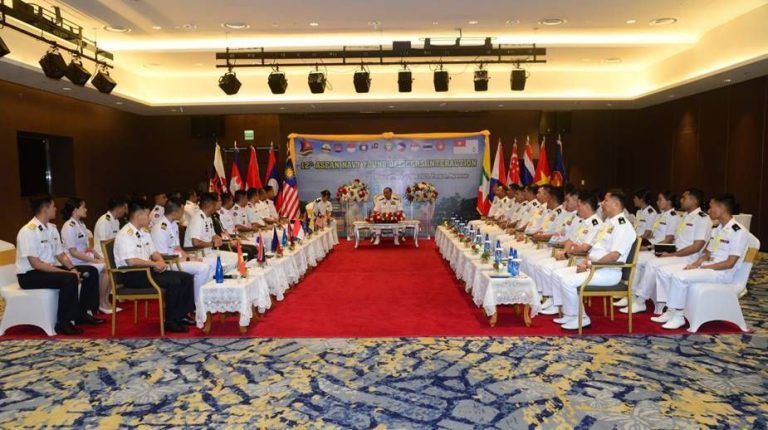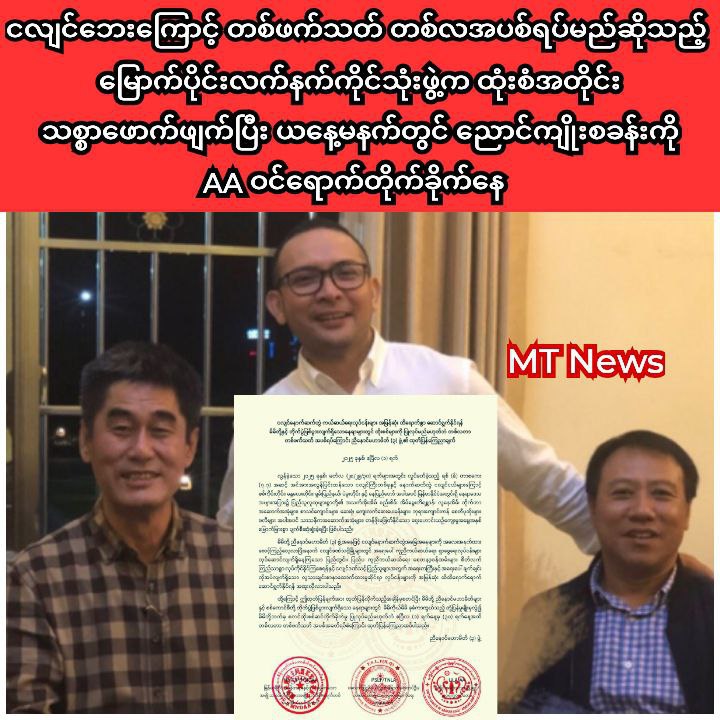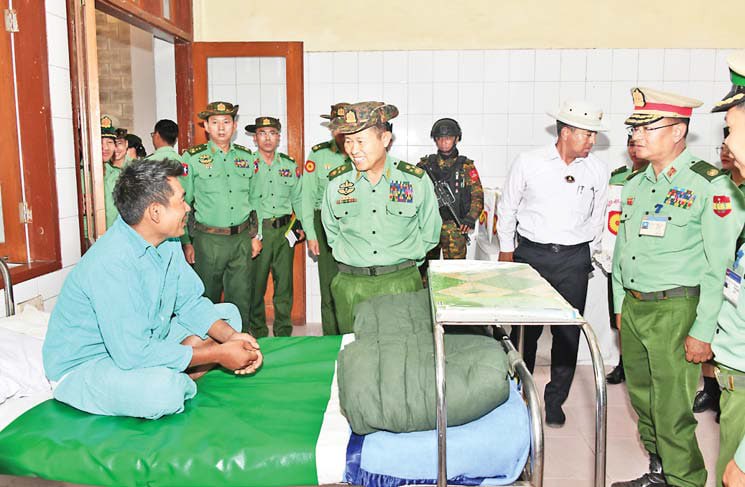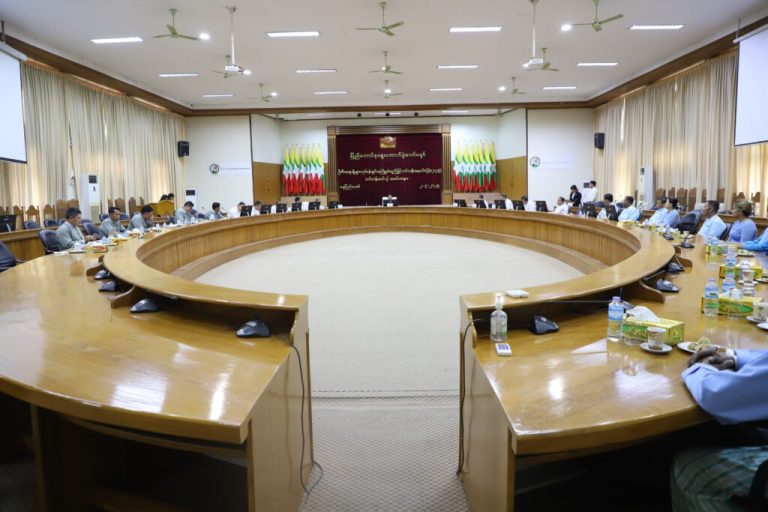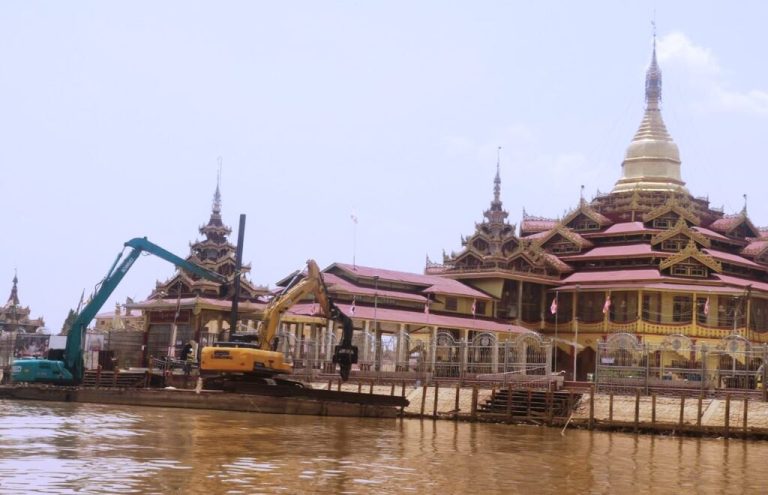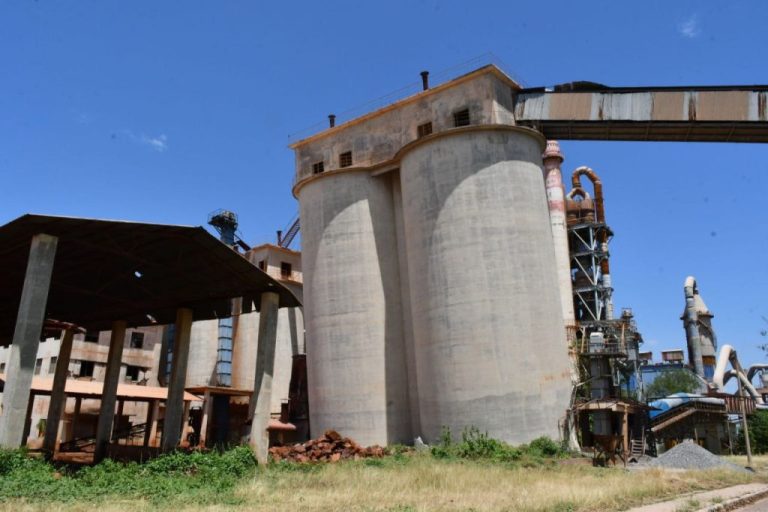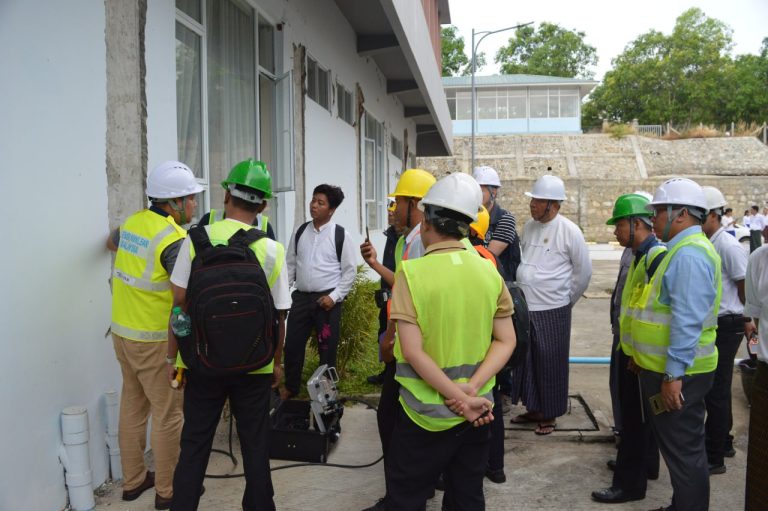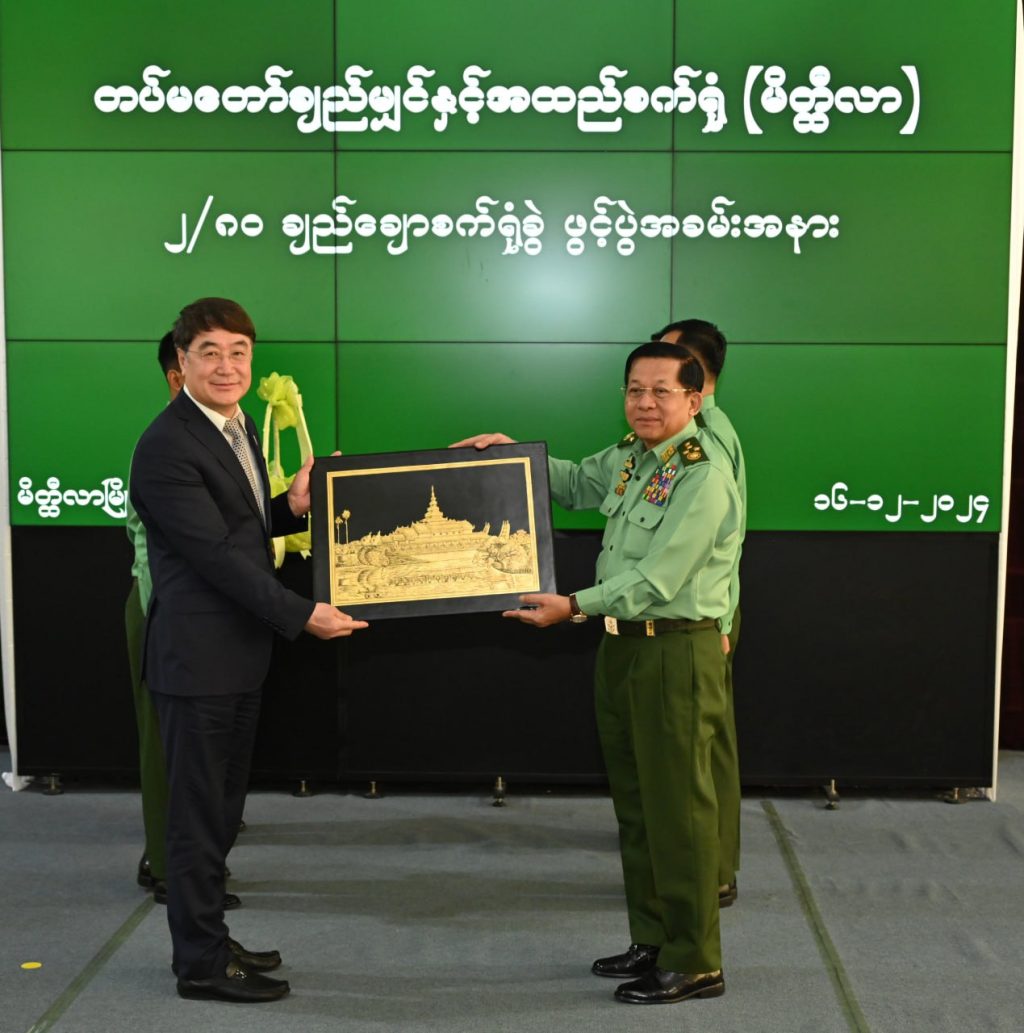
16 December 2024
The inauguration ceremony of the cotton fiber 2/80 manufacturing branch of Tatmadaw Textile Factory (Meiktila) was held this morning, attended by Chairman of State Administration Council Commander-in-Chief of Defence Services Senior General Min Aung Hlaing.
Also present were SAC Joint Secretary General Ye Win Oo, SAC members, union level officials, union ministers, chief ministers of Mandalay and Magway regions, senior military officers from the Office of the Commanderin-Chief, the Central Command commander, departmental officials, officials of China Texmatech Co. Ltd., honoured guests, local elders of Meiktila Township, the factory manager and employees, and officials.
Director of the Directorate of Ordnance of the Office of Commander- in-Chief (Army) Maj-Gen Win Myat presented a report on the establishment of the factory.
The Senior General and attendees watched a video clip on the finished cotton fiber manufacturing branch of the factory. In his keynote address, the Senior General said since birth, human beings face the three basic needs – food, clothing and shelter – every day. In order to solve the problem, SAC, since its assumption of duties of the State, has worked with the aim of setting up a robust manufacturing industry by using farm materials. Of the three basic needs, clothes are the items man needs throughout the whole life from birth till death. So, it is an important need in man’s life.
Hence, efforts are being made to turn locally cultivated cotton into value-added goods. After a review of the fall in cotton sown acreage since 2016, encouragement has been given to grow high-yield long-staple cotton that can be turned into quality threads. The country had to import a huge bulk of fabrics despite its favourable condition for cotton cultivation. Hence, it should successfully grow cotton and produce cotton fabrics that meet the international standard The country can reduce foreign currency expenses and increase FE earnings through production of fabrics at garment factories or fabric export.
It is a pleasure for all that thanks to the opening of the branch, the factory will manufacture quality fibers which still have local demand.The factory was set up in 1966-1967 under an agreement signed between China and Myanmar governments to fulfil the clothing needs of the country and to reduce the volume of exports. It was transferred to the Directorate of Ordnance of the Office of Commander-In-Chief (Army) on 1 October 1991.
After starting to shoulder the duties of the Commander-in- Chief of Defence Services in 2011, the Senior General supplied necessary equipment for the continued production of quality military uniforms and clothing that are on a par with their global counterparts. Now, the country can produce various kinds of military clothing as well as various kinds of textiles required for military personnel and civilians.
Although the factory upgrading and machinery changes were conducted, the factory still could not manufacture quality 2/80 fibers. As the factory was provided with new machines that can turn local cotton into 2/80 fibers, it has now started its operations.
At its full capacity, the factory can produce 4,840 pounds or about two tons of fiber per day.
2/80 fibers will be turned into longyis and cotton fabrics for the people, and the surplus will be distributed to the market at reasonable prices.
The opening of the branch can be mentioned as the dawn of a new age of Myanmar’s cotton fabrics. The country needs the application of quality cotton strains and correct cultivation methods to increase cotton yield.
In addition, the process of developing cotton-based industries must be continued through upgrading of cotton mills, and textile factories. The country must set up industries that will bring progress through the use of nature’s gift or the favourable conditions for agriculture. Officials and cotton farmers should strive for the development of the country’s cotton production. The Tatmadaw Textile Factory (Meiktila) is supplying military clothing for the entire Tatmadaw by turning raw cotton materials into finished goods. Likewise, the branch that opened today will be supportive of fulfilling the nation’s clothing demand. Starting from this factory onward, the entire people and textile-based MSMEs must make efforts to lead the Myanmar textile world that can manufacture quality garment and textiles products for the nation and people towards the new age.
An official of China Texmatech Co. Ltd. presented machinery related papers to the factory manager.The director of the Directorate of Ordnance presented a commemorative gift to the Senior General.
Chairman of State Administration Council Commander-in-Chief of Defence Services Senior General Min Aung Hlaing then presented a fruit basket and commemorative gift to an official of CTMTC company, who also presented an honorary gift to the Senior General.
The Senior General presented a gift of honour to the Project Chief Engineer who oversaw the machinery installation work.
The Senior General and party looked around the booths that display the different stages of cotton cultivation and fiberproduction and fabrics manufactured by the 2/80 fiber production branch.
Chief of General Staff (Army, Navy and Air) General Maung Maung Aye, Commander-in-Chief (Navy) Admiral Htain Win, Commander- in-Chief (Air) General Tun Aung, SAC Joint Secretary General Ye Win Oo, and SAC member General Nyo Saw formally opened the ceremony. The Senior General formally unveiled the signboard by pushing a button and sprinkled scented water on the plaque.
The Senior General and attendees were conducted around production stages of spinning workshop, twisting workshop, and dyeing workshop. The Senior General also looked into the requirements.
The Senior General presented a cash award for factory employees through an official.The factory manufactures school uniforms and other daily use fabrics, apart from providing the Tatmadaw and Myanmar Police Force with uniforms.
At the time when the State is in the process of fulfilling the clothing needs more and improving finished fibers, the opening of the branch will be supportive of the textile-related industries by supplying fibers and textiles to a certain degree. Moreover, it will meet its production and quality targets.

